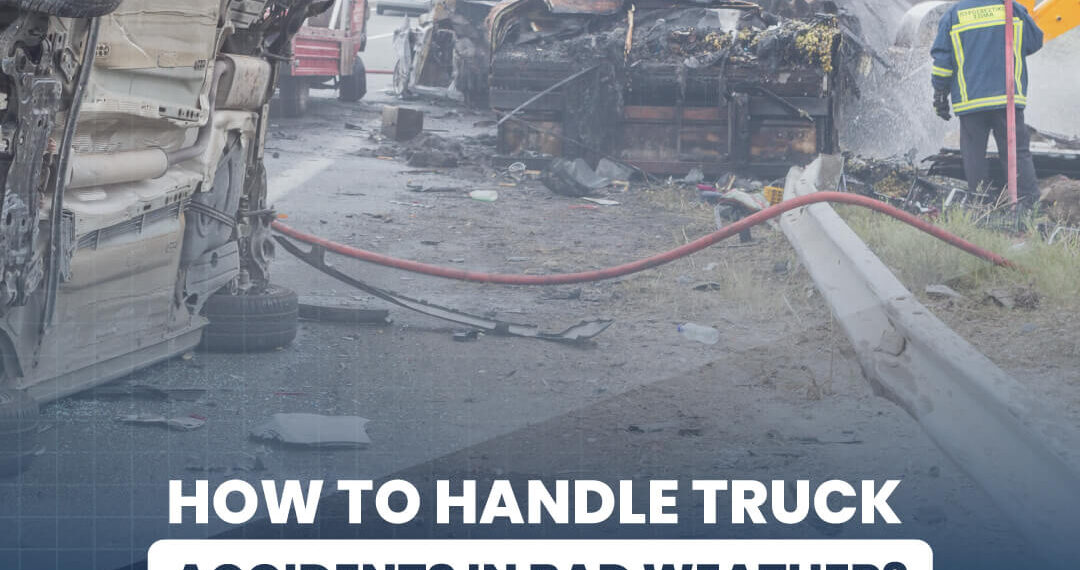[ad_1]
Driving in bad weather is dangerous for any vehicle, but it is especially difficult for large commercial trucks that are difficult to maneuver and require a longer distance to stop.
If weather conditions become too dangerous, truckers have a legal duty to remain at a rest stop or postpone their trip until the roads are safe. However, it is a known fact that truck drivers do not like to have this time too much, being that they are often paid per kilometer driven and not per hour. Sometimes in the trucking industry, money seems to take precedence over safety and leads to truck accidents.
Additionally, truckers must drive their truck safely so as not to endanger anyone on the road. Suppose they are driving too fast for the conditions or operating in bad weather even though it was too dangerous (i.e., they violated the previous statute). In that case, the trucking company under which a trucker is employed could be liable for damages from victims if an accident occurs.
Given the volume of these vehicles, extreme caution is a critical aspect of the profession, as driving in dangerous conditions can be deadly. For example, according to recent data, 25 percent of fatalities involving heavy-duty trucks are related to speeding during severe weather conditions.
If a truck accident has injured a driver or passenger of another vehicle or other innocent bystanders, it tends to be assumed that legal liability will rest with the truck driver, regardless of inclement weather. Truck drivers know this, so they must clear the roads in bad weather.
Considering this, federal authorities and organizations that use this type of vehicle must train drivers always to adjust their speed to safe weather conditions, advising them to reduce their speed by a third on wet roads and by half or more on snowy roads.
[ad_2]



